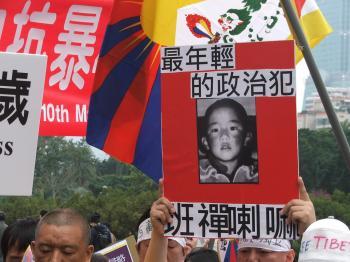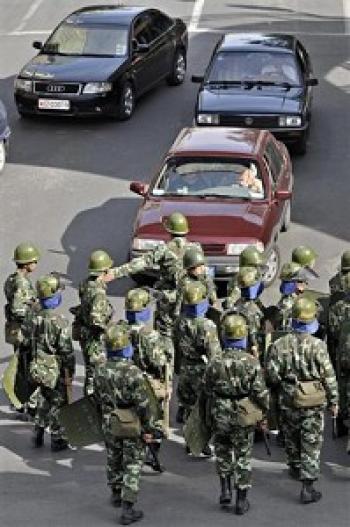On November 17, 2007, the Legal Daily, (official publication of the legal system’s administration department), reported that based on the figures from the People’s Procuratorate, 33,398 illegally extended incarcerations have been uncovered and corrected.
Extended incarceration is narrowly defined as “a suspect being detained longer than the legally allowed length by the law enforcement department before the court reaches a verdict.” Beijing has confirmed that in the past five years, over 33,000 prisoners have had their jail term unofficially extended.
The report stated the number of new extended prison cases has gone down dramatically—from 25,000 cases in 2003 to 210 in 2006 and only 47 by September this year. However the “official” definition does not account for slave-labor reform, continuous subpoena, detention under party discipline, reporting to authorities on a daily basis, house arrest and being under surveillance.
Also NOT included in the report are two other types of extended terms: The first is where the prisoner is held without required documents or reasons given. The second is when the maximum legal detention period expires, but the authority has manufactured reasons for extending the term. For example, American-Chinese businessman Mr Wen Jie was forced to stay in China indefinitely to cooperate in the so-called financial investigation case of his company. This continued for a year until Mr Wen managed to escape to Taiwan.
Almost 12,000 Illegal Jail Sentences
From January 2003 to September 2007, the Procuratorate offices around the nation reviewed 316,458 applications of reduced sentence, parole, and temporary detainment outside prison, which were submitted by legal executive departments. Among these cases, 11,783 applications were ruled illegal. This is an average of 2,481 people illegally detained per year; this figure is 1.9 times higher than 2002.
Information quoted from the Fifth National Procuratorate Prison Inspection Meeting revealed that from January 2003 to September 2007, there were 26,125 written complaints about law enforcement and prison operations including: illegal detention, illegal release, and cases where convicts were not transferred to prisons and also using forbidden punishment. The authority corrected 25,155 cases involving illegal imprisonment.
Law Enforcement Corruption
Procurator-general of China’s Supreme People’s Procuratorate Jia Chunwang, said at the Fifth Prison Inspection Meeting that based on the cases the Procuratorate reviewed, it was determined that law enforcement and prison management in China are problematic.
In the past five years, the Prison Inspection Department of the Procuratorate investigated 2,775 cases of law enforcement violations or prison corruption involving 3,149 people. But during the investigation, an additional 10,557 cases were filed, involving another 15,940 people.
One uncovered corruption case involved prison warden Wu Bangzi in Sichuan. He was paid a bribe of 2 million yuan (approximately US$266,000). Police vehicles were made available for whenever the prisoner wanted to leave the prison.


